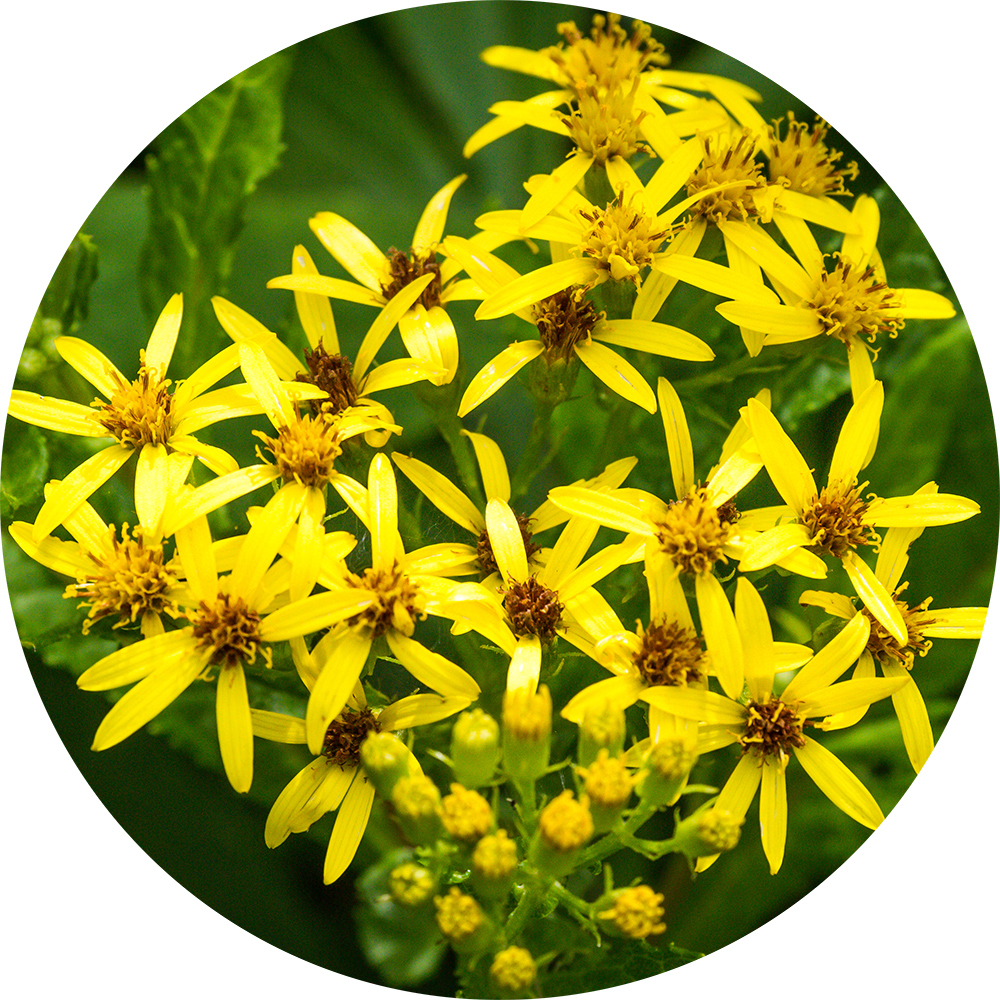(Solidago virgaurea)
As 1773 was drawing to a close, an iconic event in the history of North America took place. Britain had been collecting taxes in its North American colonies on a great number of food products, including tea, yet not giving anything in return, not even parliamentary representation. This situation outraged the colonists who organised protests along the Eastern Coast, which culminated on 16 December when “the sons of freedom” marched to the Boston port and threw overboard a newly arrived shipment of tea into the sea. The 45 ton-shipment was worth a small fortune – around 10,000 pounds at the time.
After the incident, while the sea was brimming with soggy tea for days, the American revolution was gaining momentum in 13 colonies, a revolution that finally led to independence and the birth of the United States of America in 1783. This event gave a very bad name to the traditional English tea. Naturally, alternative drinks had to be found. Tea’s misfortune was coffee’s fortune – and also benefited another plant which grows all over the world – goldenrod.
An infusion made with goldenrod, or solidago, which became known in America as the “tea of freedom”, was massively popular and was exported even to China. Actually, goldenrod has a very interesting trading history. In the 12th century, the Egyptian Vizier Saladin, who fought Richard the Lion Heart in the 3rd Crusade, believed that goldenrod had good healing properties. Via the Middle East, goldenrod’s good name reached England where it was included in the herbal treasury in Elizabethan times. It is interesting that the English had paid a lot of gold for this plant in the Middle East, until they finally realised that it grew in abundance in English wilderness too.
Goldenrod grows everywhere. It was used by American Indians and was also part of Greek mythology. Astraea, the virgin goddess in ancient Greece, fleeing from the wickedness of humanity, ascended to heaven to become the constellation Virgo which can be seen twinkling in the sky on a clear night. The moral decline of humanity was punished by a flood; after the flood waters receded only mud was left behind. Astraea’s tears of compassion are fated to have watered a seed of a golden-flowered plant, a symbol of faith in a better future – goldenrod: Solidago virgaurea herba.
HIGHLY-REGARDED IN FOLK MEDICINE
The fact that this plant has so many names – wound wort, Canada goldenrod, northern goldenrod, Missouri goldenrod, giant goldenrod, yellow weed, Aaron’s rod – speaks best of its popularity. What are its medicinal properties known for centuries – from the ancient Greeks to Saladin to the Elizabethans and the Balkans? Apart from helping in a great number of ailments – from tonsillitis to laryngitis, pneumonia, asthma and bronchitis, depression and rheumatism, goldenrod is a highly regarded herbal remedy used to treat urinary tract infections. It acts as a mild diuretic and antiseptic and helps to “cleanse” the urinary tract. Goldenrod acts as a diuretic and antiseptic. As it has the power to flush out excess water from the body, goldenrod is useful in the treatment of all ailments which infections additionally complicate; it soothes pain in rheumatoid arthritis and gout, it helps with hypertension. It is also used for the treatment of fungal and bacterial infections of the urinary and vaginal tracts, as well as infections of the mucus membrane of the mouth and the throat. It also helps flush out sand and stones from the kidneys and the bladder. Apart from cleansing the urinary tract, it also has a spasmolytic effect: it relaxes the bladder, thus relieving pain that frequently accompanies infections.
PROVEN EFFECTIVENESS OF GOLDENROD
Modern science has confirmed what had been known to ancient healers. Goldenrod, a perennial plant with yellow flowers, is not only used to prepare a delicious drink – it has a number of confirmed beneficial effects on the body:
- antioxidant
- anti-inflammatory
- analgesic
- antispasmodic
- antihypertensive
- diuretic
- antibacterial
- anti-fungal
- anti-parasitic
- cytotoxic and antitumor
- anti-mutagenic
- anti-diabetic
- cardioprotective…
The main active ingredients of goldenrod that have these effects are flavonoids which mostly come from quercetin and kaempferol, terpenes from essential oil and many saponin molecules, some of which are named after it: solidago-saponins. The European Medicines Agency in its report on this plant notes its use in European countries, ranging from the traditional use to also being an indispensable ingredient in registered preparations, as is the case in Denmark. In Germany, where phytotherapy is especially valued, goldenrod is part of 13 herbal preparations available on the market, as infusion, drops, tablets, hard and soft capsules. Indications for the use of this plant are inflammatory diseases of the urinary tract, urolithiasis, kidney stones, gastrointestinal disorders, abdominal pain and cramps, nausea, haemorrhoids, allergic reactions on the skin and mucous membranes, contact dermatitis…
PROTECTOR OF THE URINARY TRACT
Scientific research has proven the healing effect of goldenrod extract against pathogenic organisms, as well as its anti-mutagenic activity, thanks to which it successfully stops bacterial infections. That is why goldenrod is a great solution for urinary tract infections; additional research has shown that it not only prevents inflammation and infections, but also destroys prostate tumour cells.
The wide range of effects of goldenrod therefore makes it ideal for maintaining urinary tract health, as well as therapy for urinary tract infections, inflammation of the bladder (cystitis), inflammation of the kidneys (nephritis), renal failure, hydronephrosis, sand and stones in the kidneys and the bladder, pain during expulsion of stones, atrophy of the kidneys and increased creatinine and urea in the blood.
The three-pronged action of this medicinal plant – anti-inflammatory, diuretic and spasmolytic – is the reason why it is a very frequent ingredient of herbal mixtures used to cleanse the urinary tract and is also used as a supplementary therapy alongside antibiotics. This is how it has found its way into Nefrovit. Nefrovit is a natural formula used to revitalise and maintain the health of kidneys, urinary organs and the prostate. Its diuretic properties help maintain the right balance of fluids in the body, calm acute and chronic infections of the kidneys, the bladder and urinary organs and help with bacterial infections, including the most persistent one – Escherichia. Nefrovit also prevents the formation of sand and stones in kidneys and the bladder and helps flush them out.
As goldenrod, “the tea of freedom”, brought a great deal of relief and independence to the North American colonists many years ago, so it does nowadays – it continues to offer relief to those who suffer from urinary infections. A total of 30 drops of Nefrovit three times a day keeps problems away. Goldenrod, heath speedwell, dandelion, silver birch, horsetail are all part of Nefrovit – For Freedom!

